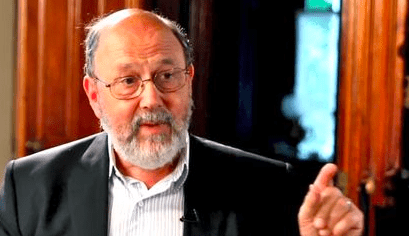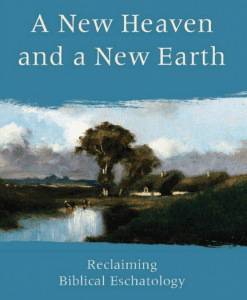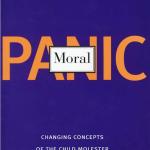 I’ll put it in theological terms first: if your eschatology gets skewed, your present follows along. Or. as NT Wright puts it, “Wrong future, wrong present.” I’m speaking of his new book Simply Good News.
I’ll put it in theological terms first: if your eschatology gets skewed, your present follows along. Or. as NT Wright puts it, “Wrong future, wrong present.” I’m speaking of his new book Simply Good News.
Oddly enough, many today who want to get the present right are totally ignoring — claiming at times it is all speculative — an eschatology. NT Wright might point to the irony of somehow getting the present right while getting the future wrong. They wouldn’t be the first to get the future wrong, so he wants them to get the future “wright”!
One mistake is to think the first Christians expected the end of the world right around the corner. Wright says this is a “myth,” one used by these interpreters — surely Albert Schweitzer and Rudolf Bultmann are primary voices — to prop up their worldview: strip off this eschatology and you can get back to the pure experience of Jesus and Paul.
He then poses another eschatology: historical forces that will give rise to a messiah figure (he points to Lenin, Stalin and Hitler). That one created a myth. One might here have quoted Pascal’s famous words about a tyrant.
Or to anchor thinking in 1st Century Jewish apocalyptic hopes about the end, about new creation, and about deliverance from enemies. Language of the end — here he circles back to his teacher, George Caird, and his big book on Jesus, Jesus and the Victory of God — was political language about judgment. Wright contends Jesus was on about the fall of Jerusalem in good Jewish tropes.
Not because it was the end of the space-time universe but because it was the end of their world. That is how the language worked (108).
And some of the language about hell worked that way too:
“Unless you repent,” he says twice in the early paragraphs of Luke 13, “you will all be destroyed in the same way.” Read that in the fifteenth century, and it’s obvious what it means: unless you give up your sins, you will be thrown into hell for all eternity. Read it in the first century, and a very different meaning should be equally obvious: unless you turn from your crazy path of nationalist rebellion against Rome, Rome will come and do to you what it has done to everyone who stands in its path. Jesus’s contemporaries took no notice. The warnings came true (108-109).
The other eschatology, one that has occupied Wright’s attention for five years or more, is the myth of progress. That is, that history is headed somewhere quite definite and if you want to be on the right side of history come along. If you don’t, it will grind you under.
As with the chronological snobbery of the eighteenth century, which we discussed in chapter 4, so now with what we might call the eschatological snobbery of progress (110).
Again, he repeats his point: this assumes too often a God who is upstairs and we are running the show downstairs. There is hard wired, then, into the downstairs myth that progress is what this world is doing on its own. People, Wright says, want to believe this so they did and got science on their side with evolutionary theories like those of Darwin.
This myth is then applied to the political and moral realms. For all the critique of postmodernity’s critique of modernity’s myth of progress most today seem to have bought into the myth of progress. Postmodernity works when you need it; otherwise be modern.
The church at times buys into the myth of progress: evangelism of the world, apocalyptic doom stories. The latter denied by the resurrection’s theme of new creation unleashed already, the former by a denial of reality. Jesus rules, the early Christians claimed, but that didn’t mean the end of evil and injustice at once, nor did it mean a theory of progress. (By the way, progress is such a myopic view of the world and pertains more or less to the Western world cultures.) They lived as if Jesus really was ruling over all. They charted new paths and advanced bold discoveries because of that hope.
1. Standing on the resurrection we can believed and work for lasting change in all dimensions of reality.
2. Lasting change is costly.
3. Lasting change is sporadic.
4. Discouragement cannot have the last word; gloom and negativity cannot be the posture of Christians.
5. Christians must work tirelessly for lasting change: individually, church, and world.
His point is that the resurrection breaks in and unleashes transformation for each and every person (121) and he works with Philippians 3.
Christian spirituality—an awareness of the loving and guiding presence of God, sorrow for sin and gratitude for forgiveness, the possibility and challenge of prayer, a love for God and for our neighbors, the desire for holiness and the hard moral work it requires, the gradual or sudden emergence of particular vocations, a lively hope for God’s eventual new creation—is generated by the good news of what has happened in the past and what will happen in the future. All this and much, much more is what is meant by the good news in the present (121).















